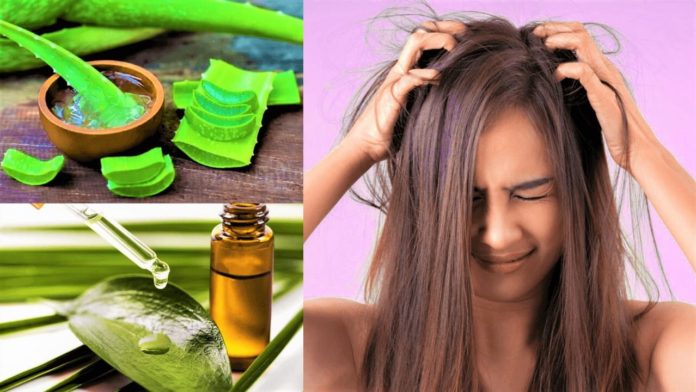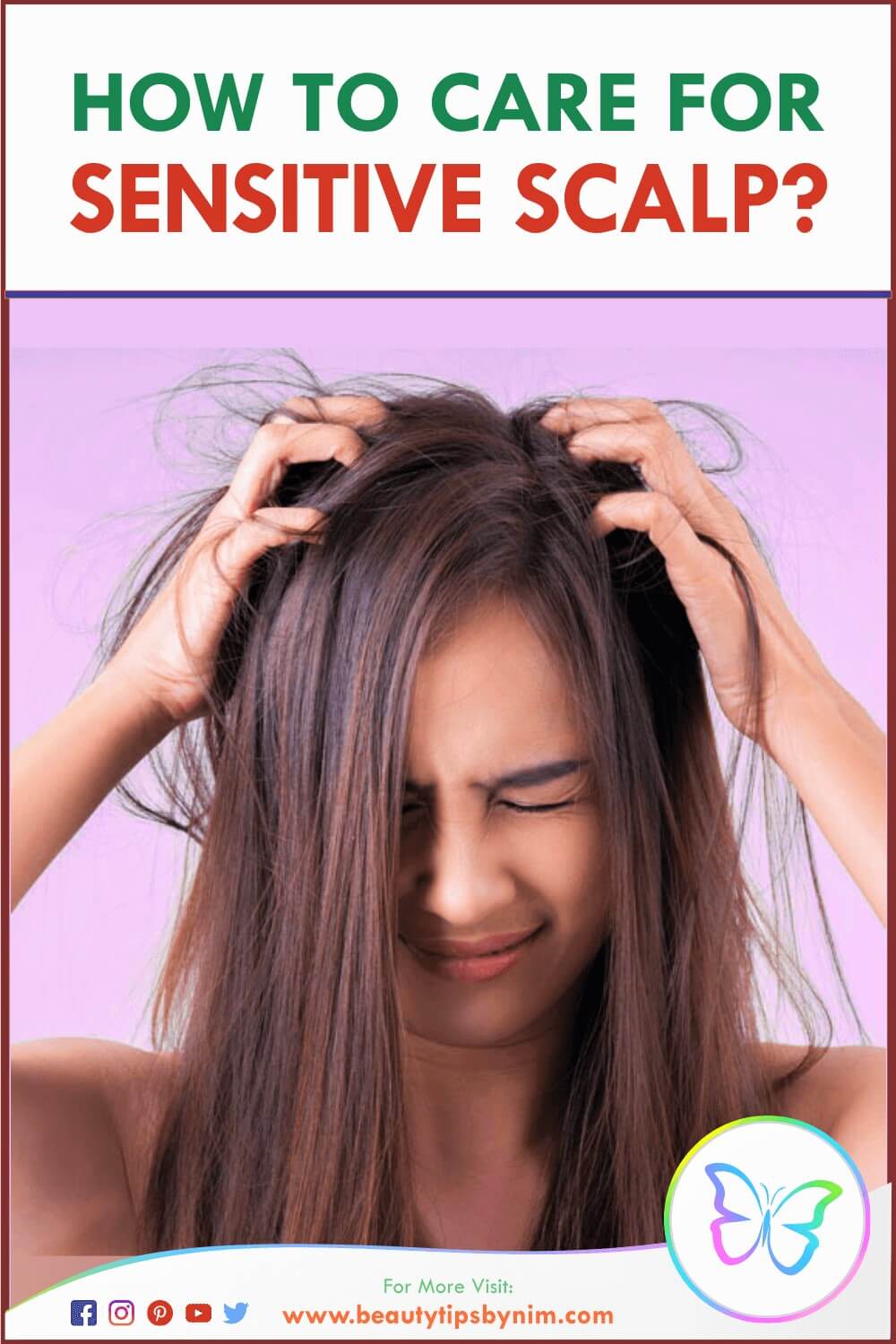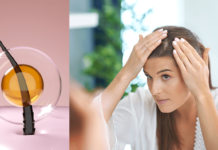Do you feel immense pain in your scalp when you comb your tangled hair with a comb? Do you often feel blisters and pimples breaking out on your scalp? Chances are you have got a sensitive scalp. There’s no need to feel worried about it. You are not alone with your sensitive scalp situation. Lots of people have it along with famous Hollywood actor Benedict Cumberbatch. Numerous people have sensitive scalp which entails sensitive follicles and a vulnerable scalp surface.
5 Ways To Care For Sensitive Scalp:
If you are looking for remedies for your sensitive scalp and how to properly care for it, then you are in luck. We at Beauty Tips By Nim bring you some of the tricks and care tips that you can follow to take care of your sensitive scalp.
1. Aloe Vera:
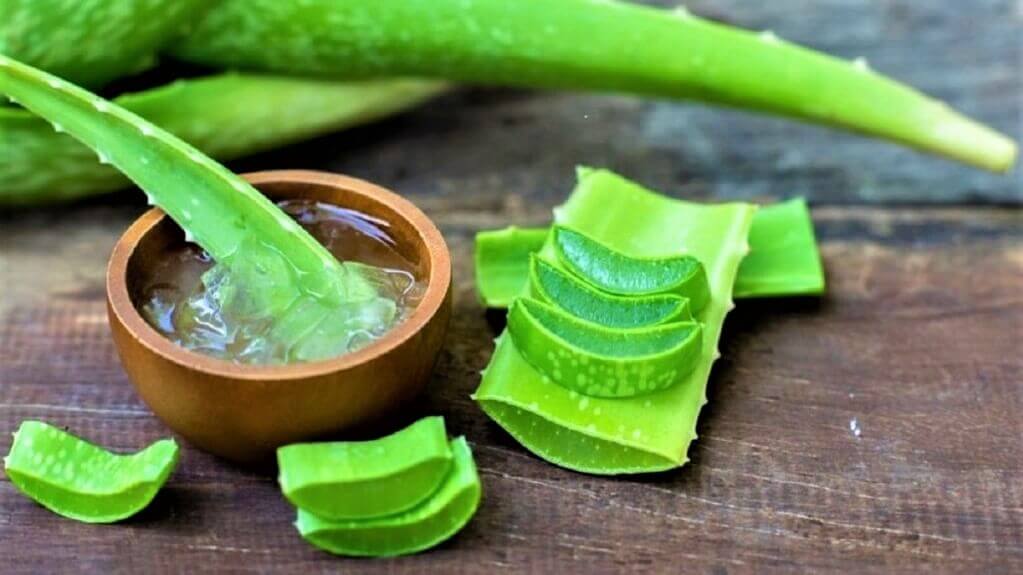
Aloe vera is a great source of moisture and nourishment for hair and scalp. Did you know it also soothes itchiness and breakouts on your scalp?
Here’s how you can use aloe vera to provide relief to your sensitive scalp:
- Take fresh aloe vera gel from an aloe vera leaf onto your rinsed, clean hair and scalp.
- Apply the aloe vera gel gently on the scalp, be sure not to rub aggressively. You can rinse the aloe vera gel afterward if you do not want the gel to sit on your scalp and hair for a long time.
- You can also use a store-bought natural aloe vera gel for your hair and scalp. Do not add any chemicals, or exfoliants do this mask, let aloe vera gel alone work its calming magic on your scalp and hair.
- Aloe vera gel will additionally promote hair growth, and reduce frizziness.
2. Chamomile Tea:
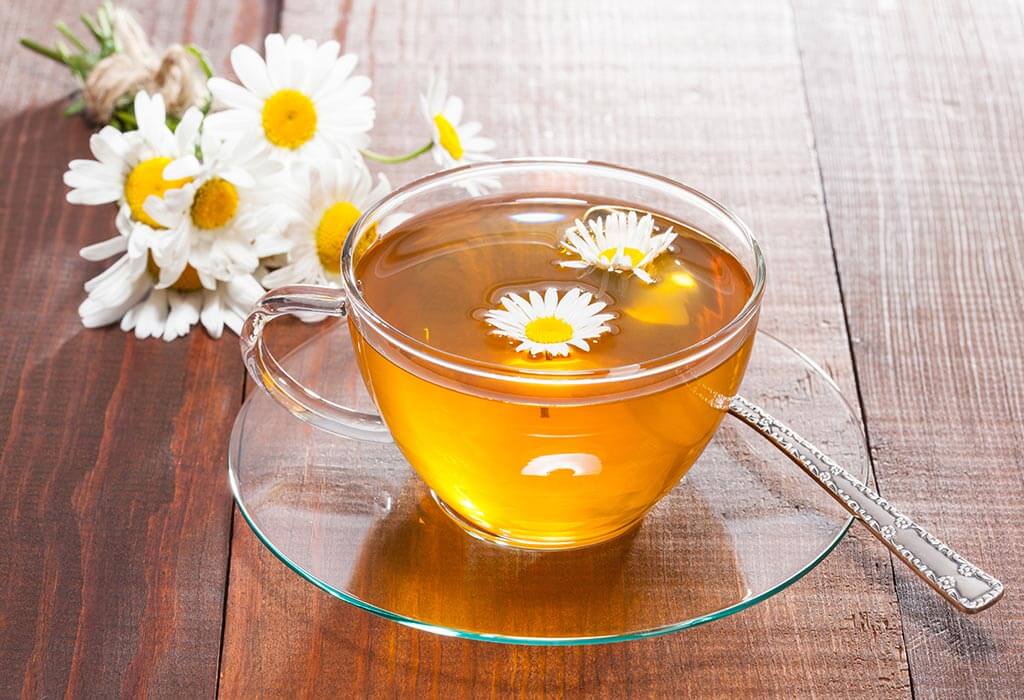
Chamomile tea has numerous advantages within itself. If your sensitive scalp condition is accompanied by dandruff and inflammation, chamomile tea’s anti=inflammatory and anti-fungal properties will improve your scalp condition, soothe your irritated scalp and reduce dandruff.
Here’s how you can use Chamomile tea to treat your sensitive scalp:
- Take 2 teaspoons of chamomile tea, steep the tea in hot water, and allow it to cool for 20 minutes or so.
- You can either pour the chamomile tea onto your scalp and hair directly, or you can transfer it onto a spray bottle for better application.
- Make sure before using the chamomile tea for your sensitive scalp, that your hair is freshly rinsed.
- You can also use chamomile tea as a spray for hair styling.
- After applying chamomile tea on your hair and scalp, there is no need to rinse it off.
Try This Ayurvedic Onion Hair Oil For Hair Growth and Healthy Hair
3. Tea Tree Oil:
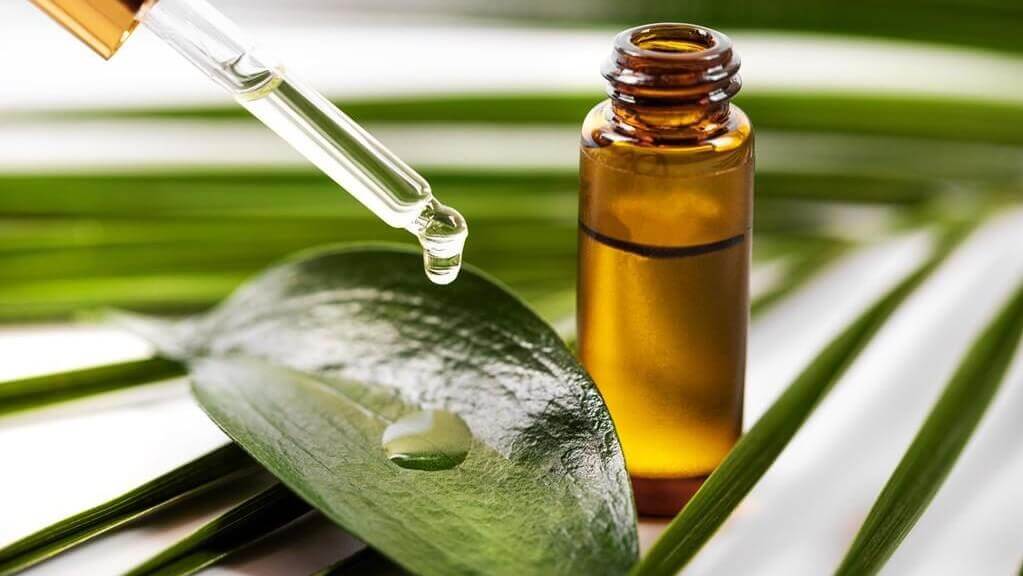
Tea tree oil is a revered ingredient for its antifungal, antiseptic, and anti-bacterial properties. Tea tree oil also prevents chemical buildup on your scalp, clears blocked pores, and removes any dead skin. This miraculous oil will help treat dry scalp and dandruff, by providing moisture and nourishment. It is a must-try if you want to care for your sensitive scalp.
Here’s how you can use tea tree oil for the sensitive scalp:
- Blend a few drops of distilled water with tea tree oil in a spray bottle.
- Shake the bottle for the proper mix of the two liquids.
- pray the blend of tea tree oil and distilled oil on your scalp whenever it feels irritated or dry.
You can also add drops of tea tree oil in your shampoo, conditioners, and other hair care products which do not already contain tea tree oil, to soother sensitive and irritated scalp.
4. Apple Cider Vinegar:

Apple cider vinegar is enriched with Vitamins-C and B particularly, alpha-hydroxy acid and minerals. It has anti-inflammatory properties, restores the pH balance of your scalp, and exfoliates your scalp surface. It also reduces the chances of any flareups, irritation, and dandruff on your scalp.
Here’s how you can use Apple cider vinegar to cure your sensitive and irritated scalp situation:
- Blend 1/3rd cup of apple cider vinegar to 2/3rd amount of distilled water in a container, preferably a spray bottle.
- Apply in on to your scalp, and work your fingertips to give yourself a calming massage.
- Rinse the apple cider vinegar blend in the shower with cold water.
MUST-READ: Top 6 DIY Homemade Leave-In Conditioners for Healthy Hair
5. Witch Hazel:
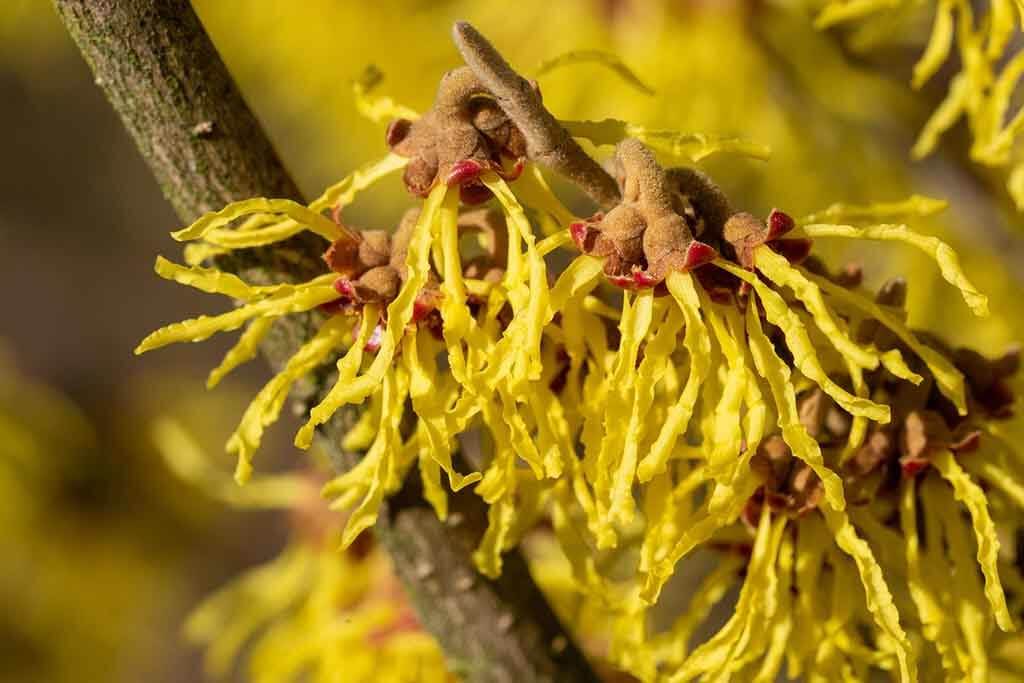
A Witch Hazel rinse comes off as the most benefitting process for your scalp, especially in dry, winter months, or when your scalp is behaving worse. Its astringent and moisturizing properties exfoliate your scalp off any dead skin cells and dandruff.
This blend will also drain excess greasiness of the scalp in summer, humid months without drying out your scalp. Additionally, witch hazel will soothe any breaks, cuts, and inflammation to your scalp caused by scratching and using harmful chemical-infused hair care products.
Here’s how you can use Witch hazel as a remedy for your sensitive scalp:
- Mix 1/3rd cup of witch hazel and 2/3rd amount of distilled water in a container, preferably a spray bottle for easier application.
- Remember not to use witch hazel that is diluted or contain alcohol, as it can further irritate your scalp.
- Apply this blend of witch hazel on your freshly washed hair.
- Let it stay for 20-30 minutes before rinsing off with cold water.
Precautions That You Need To Take To Care For Sensitive Scalp:

1. Check you have any specific allergies and stay away from those products and ingredients. Often at times, we discover that we are allergic to certain food items and ingredients in our beauty products. It is better to get an allergy test done before using any new products or if you use sense irritation after applying a specific product or eating a certain food item.
2. Dryness and Greasiness of the scalp can be the reason behind scalp sensitivity. The listed above hair rinses will help you with any of these conditions. Also, you have this note in your mind, not to use any hair care product that makes your scalp too much oily, or strips off all the oil from the scalp’s surface.
3. Do not comb too harshly and do not spend much time in the sun. Combing your hair forcefully to detangle your strands is a big mistake as it causes pain to your scalp and hair follicles. It will also result in hair breakage and temporary bald spots if you are not combing your hair gently.
Since your scalp is also skin, it is prone to sunburn. Especially if you have a sensitive scalp, carry an umbrella or wear a loose hat to cover your head in the day, from summer to winter. This is one of the more important tips on how to care for sensitive scalp.
4. Do not use hair care products that have SLS, paraben, other harmful chemicals, and fragrance. Using products such as shampoos and conditioners that have harsh chemicals infused in them leads to chemical buildup on your scalp, hair falls, and clogged hair follicles.
Part of the reason why the sensitive scalp condition rises. Use natural shampoos, you can make your own DIY homemade shampoo. Later, follow up with the above hair rinses for extra care and protection for your sensitive scalp.
5. Do not over-wash your hair and rub your scalp too aggressively. Over-washing your hair more than thrice in a week and spending too much time in the shower, strips your scalp off its natural oils and causes it to get dry and flaky. Also, do not rub your scalp harshly with a towel in an attempt to dry it, rather pat your hair dry and use a hairdryer later.
6. Since your scalp is sensitive, avoid scalp scrubs and masks. This is for your own good and your scalp’s health. Masks and scrubs will introduce foreign and drastic ingredients to your scalp, with which it may not cope well. So hair rinses are the best methods to give your scalp extra shine, nourishment, and care.
Share your review about the sensitive scalp treatments and tips after using them in the comments. Also, do tell us if you have any suggestions about how to care for sensitive scalp. Stay updated on beauty trends, haircare, and skincare tips from around the world with Beauty Tips By Nim
Follow us on Instagram for more DIY homemade remedies and wellness tips.
FAQs on How To Care For Sensitive Scalp:
Why do the roots of my hair hurt?
If your hair roots are aching and feel overly-sensitive, there are a few common reasons behind it. The feeling of pain/hurt, stemming from the hair roots can be due to genetic traits, health disorders, dandruff, chemical buildup, injury, forceful pulling of hair, and more. If the hurt in your hair roots grows on to be severe, consult a doctor.
Why is my scalp sore after wearing a ponytail?
A rubber band loses its elasticity when pulled on from one side or two over long hours. Same is the case for hair and scalp. Your scalp feels sore after keeping your hair tied up in a ponytail because your hair follicles can no longer bear the weight of your hair when being stretched. Change your hair style frequently and let your hair breathe once in a while.
How do you know if your scalp is sensitive?
If your scalp feels too irritated after a comb-thorough, you wince in pain when your hair gets in the slightest and you see the presence of too much dandruff on your scalp, it is most likely that your scalp is sensitive. There are numerous other symptoms of a sensitive scalp, but these are the most common ones.
What is the best shampoo for a sensitive scalp?
The best shampoo for sensitive scalp would be the one you are sure carries all-natural ingredients, excluding those you might be allergic too. Another great option to try to care for your sensitive scalp is to make your own DIY homemade shampoo.
Can shampoo irritate your scalp?
Of course. Furthermore, the most common reason behind scalp irritation is chemical-infused shampoo or using shampoos not suited to your hair type.
